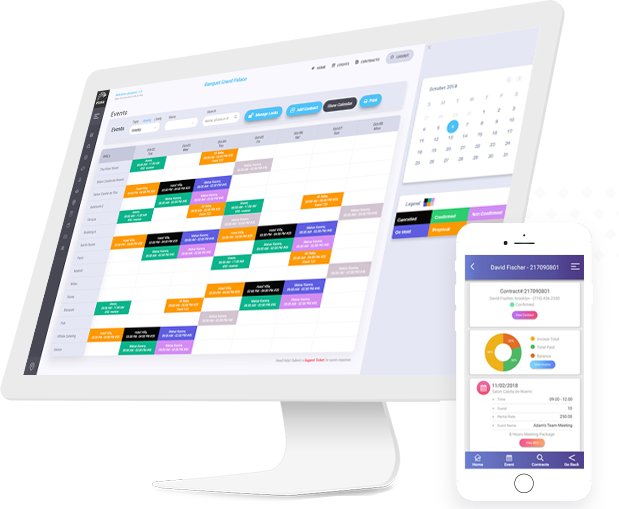Taking a step towards becoming the significant powerhouse even in the healthcare sector, UAE is turning into the hub of digital transformation. The key driving force for the increased popularity of smart healthcare with the advent of telemedicine is the requirement to build medical apps in the UAE. Whether you are a new start-up entering the sector or an old tech firm, seeking to expand, developing a top-notch healthcare app, takes more than technical know-how, but rather it takes a sharp eye for local laws, patient requirements, and the newest developments in health tech particularly in a location like UAE. Medical apps are revolutionizing the lives of patients and physicians. Today, patients can monitor their health easily, schedule appointments, renew prescriptions, and view medical records all from their phones. Meanwhile, physicians and nurses can devote more time to patient care rather than being bogged down by paperwork due to automation and improved workflows.
With all these advantages, it's little wonder that healthcare providers, hospitals, and clinics are collaborating with medical app developers to create user-friendly, secure apps. So how do you develop a successful healthcare app? In this article, we'll take you through the step-by-step process and offer expert advice on how to get it just right.
Here, we will break down the must-haves from the major steps to typical issues guiding you through medical app development in the UAE with ease. Learn how to develop a solution that not only promises the market needs but also succeeds in this rapidly growing industry.
Breaking Into the UAE’s Digital Health Market
UAE stands out as one of the most advanced healthcare sectors in the region, thanks to the strong initiatives by the government such as Dubai Health Strategy 2021 and Abu Dhabi’s Vision 2030. With heavy focus on digitalisation programs, a perfect landscape for healthcare app development is created in the UAE.
After the pandemic, both patients and doctors are increasingly preferring more of remote consultations and the several factors that are driving this growth includes the rising adoption of telemedicine.
Additionally, government policies, such as the Dubai Health Authority (DHA) regulations, are actively promoting digital health solutions, while the country’s high smartphone penetration rate, exceeding 80%, fuels demand for mobile health apps. For those looking to create medical apps in the UAE, aligning with these trends while ensuring compliance with local regulations is essential for success.
Top Features Your UAE Healthcare App Needs to Stand Out
Not all healthcare apps gain user trust and engagement. The most effective UAE medical app solutions incorporate these must-have features:
1. Telemedicine & Virtual Consultations
Integrating secure video calling and chat functionalities allows patients to consult doctors remotely, a critical feature in today’s fast-paced world.
2. EHR & Patient Records Integration
Seamless access to Electronic Health Records (EHR) ensures doctors have real-time patient data, improving diagnosis accuracy.
3. AI-Powered Diagnostics
AI chatbots and symptom checkers enhance user experience by providing instant preliminary assessments
4. Multi-Language Support
Since the UAE is a multicultural hub, supporting Arabic, English, and other languages is crucial for wider adoption.
5. Secure Payment Gateways
Cashless transactions via Apple Pay, Google Pay, or local options like Careem Pay make payments hassle-free.
Understanding how to develop healthcare apps in the UAE with these features can help significantly to boost usability and adoption rates.
Understanding UAE Medical App Regulations
One of the biggest hurdles in medical app development in the UAE is navigating the country's strict regulatory landscape. Both the Dubai Health Authority (DHA) and the Ministry of Health and Prevention (MOHAP) enforce rigorous guidelines to protect patient safety and ensure data security, making compliance a top priority. Key requirements include securing DHA approval a thorough review process that all health apps must pass and adhering to international standards like HIPAA and GDPR, which help build user trust even beyond local regulations.
Additionally, data localization rules often mandate storing certain health data within UAE borders, meaning developers may need to set up local servers. The stakes are high non-compliance can result in heavy fines or even app removal. That's why it's crucial to involve legal experts early in the development process to avoid costly missteps.
Future Trends in UAE Medical App Solutions
The future of healthcare app development in the UAE is shaped by AI, IoT, and blockchain. With predictive analytics, diseases can be detected early on and real-time monitoring with wearable integration will dominate the next wave of innovations.
Additionally, the UAE’s push for AI-driven healthcare (like the Abu Dhabi AI Strategy) means that apps incorporating machine learning will have a competitive edge. The opportunity to build medical apps in the UAE is immense, but success depends on understanding local regulations, user expectations, and technological advancements. By focusing on security, usability, and innovation, developers can deliver UAE medical app solutions that transform patient care.
If you're looking to develop patient care apps in the UAE, now is the time to act combine cutting-edge tech with regulatory compliance, and your app could become the next big thing in Middle Eastern healthcare.









.jpg )







Leave a comment